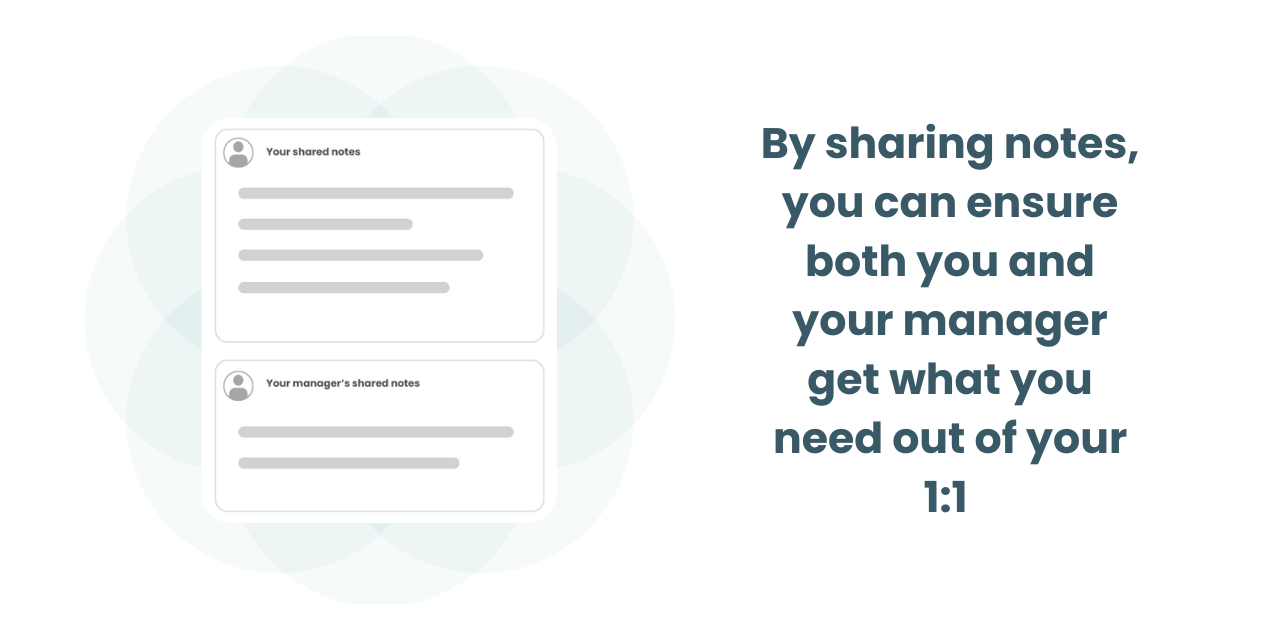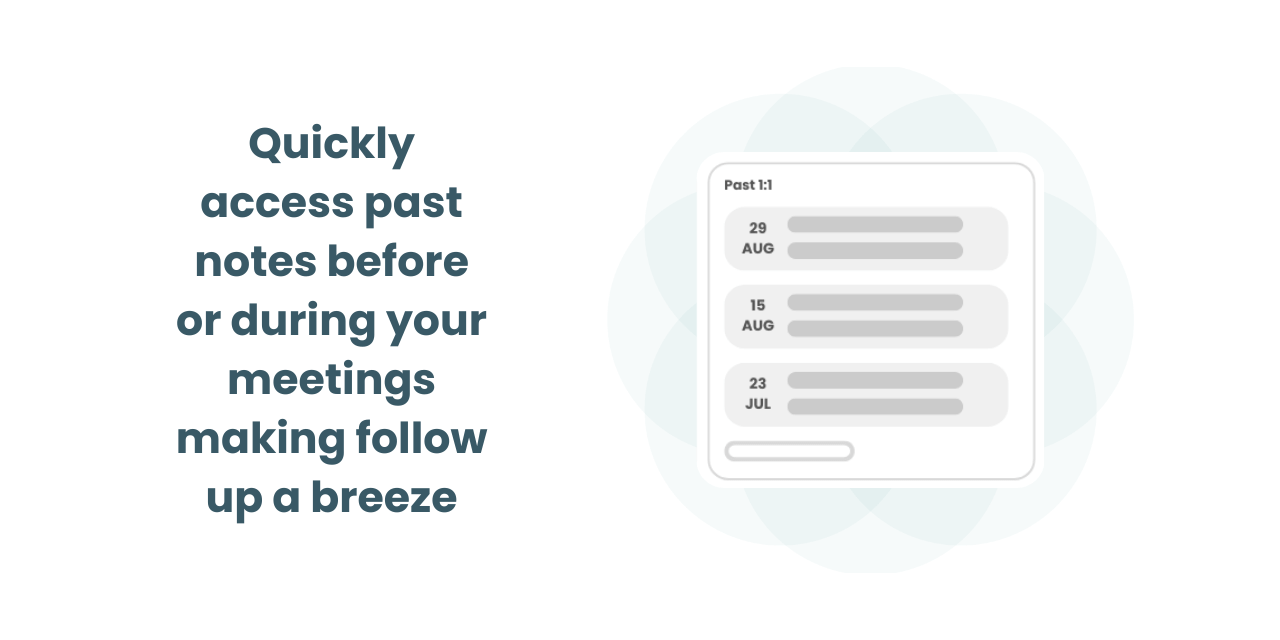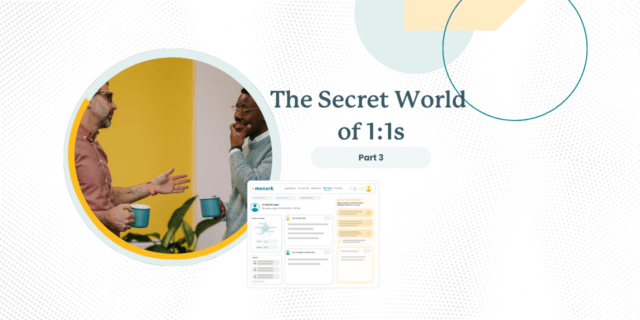
Make the Most of Your Manager: Leveraging 1:1s for Job Performance and Career Growth as an Individual Contributor

Your 1:1 meetings are more than just routine check-ins—they’re your gateway to unlocking support, growth, and a stronger relationship with your manager. It’s ironic that, despite these meetings being designed to give you space to voice your needs, so few employees are equipped with the tools and training to fully leverage them.
Many managers aim to make the most of their limited time with direct reports by letting them take the lead in 1:1s (and rightly so—check out our article on how to excel as a people leader during 1:1s for more). However, this can leave you uncertain about what should or could be brought to the table in these conversations. The good news? Running effective 1:1s doesn’t have to be complicated. Whether you’re an individual contributor or a middle manager looking to maximize these meetings and see the benefits firsthand, keep reading for practical tips and strategies you can start using right away.
It doesn’t have to be all business
Leverage your time with your manager to build rapport and get to know them better. While it’s important to maintain professionalism, starting with a warm greeting, a quick check-in on how things are going, and even holding space to discuss personal hobbies or how the weekend went can go a long way in strengthening the relationship—especially if you work remotely and this is one of the few personal touchpoints you have with your boss.
Though it might seem like a waste of time to some, there’s a reason Monark offers an entire course on building trust and relationships. These small moments of openness gradually build trust, paving the way for clearer communication—especially when it comes to delivering difficult news to your manager down the line.
Make it more than a status update
A 1:1 meeting can be whatever you make of it. If you’re used to using them just for status updates, it might feel strange to bring up other topics. However, a 1:1 is your chance to discuss anything on your mind with your manager—just be sure to keep it professional.
Beyond covering roadblocks or project updates, consider discussing things like learning and development opportunities, career goals, workplace frustrations (like lack of flexibility or desk setup concerns), team dynamics, or any other needs you have. It can also be helpful to keep a short list of these topics handy when planning your 1:1 agendas, so you can occasionally introduce new, meaningful discussions.
Make your needs clear
The goal of a 1:1 is to support your success, but if you struggle to get a word in because your manager comes in with their own agenda, try briefly listing a couple of things you’d like to discuss right at the start (e.g., “I’m glad we have our meeting today—I’ve hit a roadblock on project X and also heard about an HR coaching opportunity I’d love to discuss.”). This sets the tone that you have important topics to cover and increases the likelihood your manager will make time for what matters to you.
Even better, suggest using joint meeting notes—like those available with Monark’s 1:1 meeting tool—so both of you can add discussion points in advance. This way, each party is aware of the other’s goals before the meeting even begins.

Show you care
At Monark, we believe—and the data supports—that 1:1s are invaluable tools. However, we also recognize they can be time-consuming, especially as many middle management layers shrink, leaving managers with larger teams. That’s why it’s crucial to show your manager that their investment in these meetings is worth their time.
To demonstrate your commitment, try taking notes during the meetings, following up on previous discussions, and sharing successes from solutions you’ve developed together. If you’re meeting online, turning on your camera can help show that you’re engaged and attentive. Additionally, suggesting a resource like Monark’s 1:1 tool can signal your interest in making these meetings more efficient and productive for both of you.
Demonstrate your capacity but know when to ask for help
If one of your agenda items is an issue you or your team is facing, it’s helpful to bring a potential solution to the conversation. Offering solutions shows your manager that you’re not just expecting them to fix everything but seeking their guidance in solving the problem yourself. Even if they suggest a different approach, this builds trust and demonstrates your initiative, making them more likely to step in when truly complex challenges arise.
That said, remember that asking for help isn’t a sign of weakness. Be honest about your limitations and request support when needed. Doing so will help you, your team, and your manager stay on track.
Get clear on action items & remember to follow up
Before wrapping up a meeting, make sure you’re clear on what’s expected of you, what you’re expecting from your manager, and the deadlines for each task. There’s nothing worse than leaving a meeting and immediately thinking, “Wait… am I supposed to set up that meeting, or are they?”
Even with the best intentions, things can still slip through the cracks—this is why follow-up is so important. We understand that following up with your manager can feel intimidating, but if they committed to something and don’t bring it up again, it’s likely they simply forgot. To ease any hesitation about holding your manager accountable, try framing it with a simple statement like, “Great! Thanks for your help with that. I’ll just make a note to follow up with you next week to keep things moving.” Plus, Monark’s tool stores all your meeting notes in one easy-to-access place, making it simple to revisit key points and follow up as needed.

Show you care
Ultimately, your 1:1 meetings are a powerful tool that can significantly impact your job performance and career growth if you approach them with intention. By using these meetings to build rapport, communicate your needs, and collaboratively solve problems, you can foster a more productive relationship with your manager. Remember, these discussions are your opportunity to go beyond status updates—addressing development goals, roadblocks, and personal growth. With thoughtful preparation and proactive follow-up, you can ensure each 1:1 is not only time well spent but also a stepping stone toward achieving your professional objectives.
References:
1. Rogelberg, S. G. (2024). Glad we met: The art and science of 1:1 meetings. Oxford University Press.

